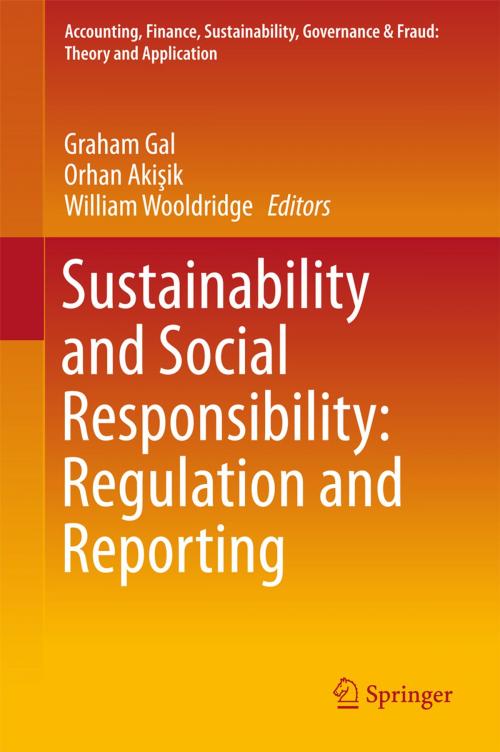Sustainability and Social Responsibility: Regulation and Reporting
Business & Finance, Economics, Sustainable Development, Nonfiction, Science & Nature, Science, Biological Sciences, Environmental Science, Social & Cultural Studies, Political Science, Government, Public Policy| Author: | ISBN: | 9789811045028 | |
| Publisher: | Springer Singapore | Publication: | August 8, 2017 |
| Imprint: | Springer | Language: | English |
| Author: | |
| ISBN: | 9789811045028 |
| Publisher: | Springer Singapore |
| Publication: | August 8, 2017 |
| Imprint: | Springer |
| Language: | English |
This book addresses key issues related to the choice between governments regulating and enforcing society’s sustainability and social responsibility objectives, and firms reporting on their sustainable and socially responsible activities so stakeholders can exert pressure on firms to achieve society’s goals. While these may be considered as the two endpoints of a continuum, it is clear that there are differing perspectives on the role of governments in sustainability and responsibility. At one end of this continuum are stakeholders who believe the only way to achieve a sustainable and socially conscious society is to establish and enforce regulations with the concomitant governmental organizations to oversee and enforce those regulations. At the other end are those who consider firms to be crucial organizations for achieving sustainability and socially responsible outcomes, and who feel it is the responsibility of stakeholders to determine the legitimacy of firms’ actions. It is probably not the case that any economies exist at either end of this continuum, but it is clear that the availability of reliable information is critical for any stakeholder to review the performance of either the governments or the firms. This book presents a varied set of papers that explore the issues that must be considered, regardless of which position a stakeholder takes.
This book addresses key issues related to the choice between governments regulating and enforcing society’s sustainability and social responsibility objectives, and firms reporting on their sustainable and socially responsible activities so stakeholders can exert pressure on firms to achieve society’s goals. While these may be considered as the two endpoints of a continuum, it is clear that there are differing perspectives on the role of governments in sustainability and responsibility. At one end of this continuum are stakeholders who believe the only way to achieve a sustainable and socially conscious society is to establish and enforce regulations with the concomitant governmental organizations to oversee and enforce those regulations. At the other end are those who consider firms to be crucial organizations for achieving sustainability and socially responsible outcomes, and who feel it is the responsibility of stakeholders to determine the legitimacy of firms’ actions. It is probably not the case that any economies exist at either end of this continuum, but it is clear that the availability of reliable information is critical for any stakeholder to review the performance of either the governments or the firms. This book presents a varied set of papers that explore the issues that must be considered, regardless of which position a stakeholder takes.















